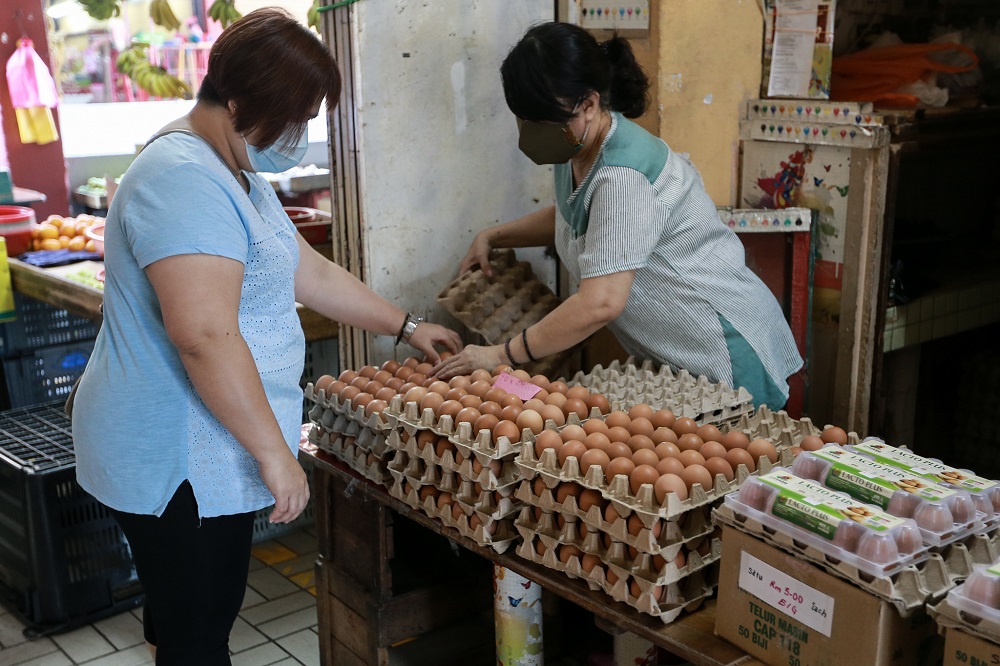KUALA LUMPUR, Nov 17 — Egg prices in Malaysia fell by 38 per cent during the movement control order (MCO), while the cost to produce eggs during that period increased, the Ministry of Agriculture and Food Industries (Mafi) said today.
In a written response during Ministers’ Question Time in the Dewan Rakyat, Agriculture and Food Industries Minister Datuk Seri Ronald Kiandee noted that the Covid-19 pandemic had affected all economic activities in Malaysia including the chicken egg industry with a fall in demand for eggs and an increase in global prices for chicken feed.
The minister said the implementation of the MCO had resulted in the food sector limiting its operations, which he said in turn caused a fall in demand and use of eggs by restaurants, hotels and school canteens, among others.
“However, egg production remained at the same levels and led to egg dumping (lambakan) at farms to the extent that it caused a fall in the sale price for eggs in the market.
“Based on the market price for eggs (as per that for Grade C eggs), there has been a significant drop in prices of 38 per cent to RM0.21 per egg in November 2020, compared to RM0.34 per egg in April 2020. This has resulted in a decrease in the profit margins of egg producers,” the minister’s written reply said.
The minister also said egg producers have also faced shrinking profit margins due to an increase in production costs, due to a 4 to 5 per cent increase in chicken feed prices with the cost for chicken feed accounting for 70 per cent of production prices.
“This increase in chicken feed prices is also influenced by an increase in the price of the base ingredients for chicken feed such as corn that increased by 15.2 per cent to RM1,100 per tonne in November 2020, compared to RM955 per tonne in April 2020 and soybeans that increased by 9.4 per cent to RM2,100 per tonne in November 2020 compared to RM1,920 per tonne in April 2020,” he said, noting however that these prices are determined by global commodity market prices.
The minister said his ministry is now holding discussions with the association for animal feed producers to find the best solution, as a short-term intervention measure.
“At the same time, to ensure food supplies especially the domestic egg supply are always sufficient and guaranteed, Mafi always monitors the daily food supplies since MCO was implemented until now, besides ensuring the welfare of local farmers is always taken into account. Information within the country that is received from government agencies, industry players and agriculture entrepreneurs is always monitored and analysed regularly,” he added.
He was responding to Jelebu MP Datuk Jalaluddin Alias’s question on how much the Covid-19 pandemic has impacted the egg production sector locally, with the industry allegedly suffering millions in losses following the increase in chicken feed prices.
Malaysia first implemented the MCO on March 18, with non-essential businesses ordered to temporarily close, and entered into the conditional movement control order (CMCO) phase on May 4, where most businesses were allowed to reopen.
Malaysia later shifted to the recovery movement control order (RMCO) on June 10 with this phase expected to end December 31, but many states have now seen CMCO re-imposed amid a recent surge in Covid-19 cases.



















